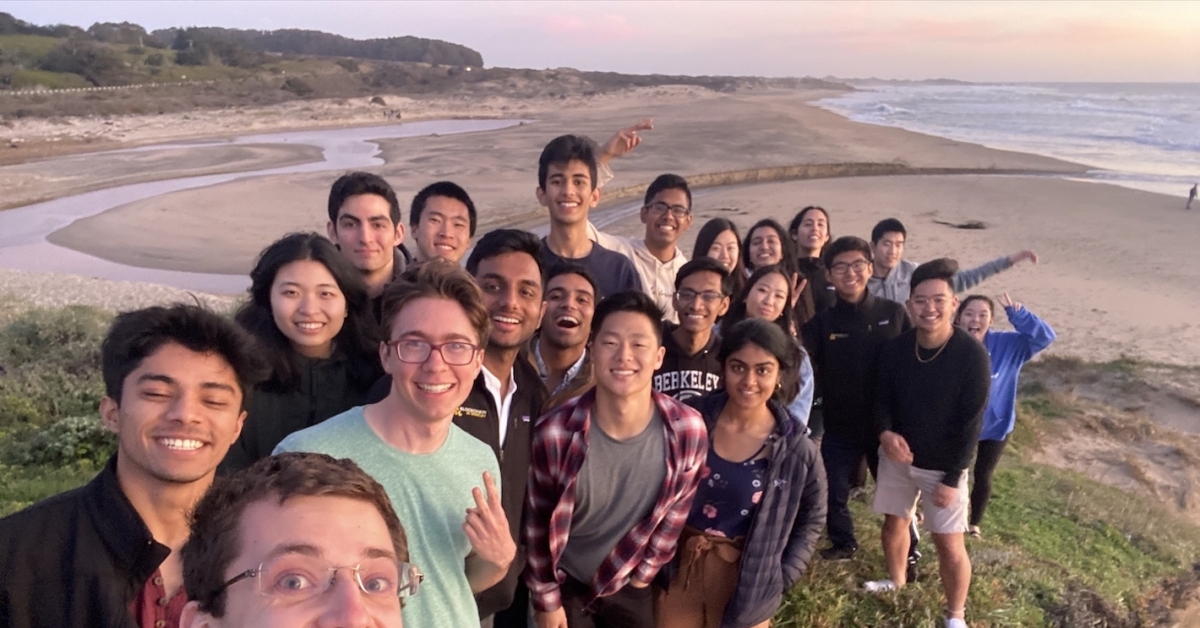Out of all the universities with blockchain education programs, two stand out by offering students paid opportunities to learn by working.
At MIT and Berkeley, students can take accessible and well-paid jobs at blockchain startups, often for part-time arrangements like 12 hours a week.
This post is part of CryptoX’s 2020 university package. See our exclusive ranking of blockchain universities here.
MIT Bitcoin Club President Nate Foss said his student organization has a dedicated Slack channel for crypto-related job openings. Plus, the MIT Bitcoin Club’s alumni network includes local companies like Skynet Labs, which often hires undergraduates.
“We don’t have any formal programs or pipelines, but plenty of people are at early-stage startups so they reach out to their network,” Foss said.
UC Berkeley
Meanwhile, in California, Blockchain at Berkeley is more formal than a student club but separate from like-minded university research labs. This organization, BaB, is another one of the leading conduits for students seeking Silicon Valley jobs.
BaB is mostly self-funded and student-run, thanks to a consulting service utilized by companies like Qualcomm, ExxonMobil, Ford and PG&E.
“It gives our members experience in the industry and to make an impact they can see by the time the semester is over,” said Katherine Plotz, head of business development at BaB.
See also: CryptoX U – The Top Universities for Blockchain
Dozens of club alumni launched crypto companies since BaB started in 2016. The startup Opyn, which raised $2.16 million earlier this year, the venture fund Dekrypt Capital and the feminist advocacy group She265 are just a few examples founded by alumni. Several BaB members said they know friends who raised venture capital and dropped out of school. But, for those who stay in school and work part-time, there are many unique opportunities.
“I’ve only taken one computer science class at Berkeley, yet I work as a software engineer for a payments company in the blockchain lab,” said BaB co-President Liam DiGregorio. “I took the BaB developers course and I got the job because of the reputation that BaB brings.”
BaB helps run student-led courses, including the “Blockchain Fundamentals” edX course reaching more than 160,000 students over the past two years, plus a separate accelerator program. Since more students are now looking for online courses, BaB is expanding these open source offerings in 2020.
“I did quite a bit of blockchain work in high school and ended up interning at a blockchain-focused venture fund,” said Alpin Yukseloglu, director of fundraising for the Berkeley Blockchain accelerator. “The person I was working for said Berkeley had the best blockchain programs. I was applying on the East Coast as well. [BaB] was a pretty big factor in terms of deciding which university to go to.”
This industry-centric approach stands in stark contrast to the student culture at MIT, where bitcoin enthusiasts learn how to work with bankers and lawmakers on projects like central bank digital currencies.
MIT effect
Over on the East Coast, MIT is perhaps home to one of the least shilly crypto cultures.
Much like BaB alumni, members say MIT Bitcoin Club participants have a higher propensity for dropping out to launch startups than their peers in other sectors. Since the pandemic started, some universities are also being more flexible about students taking a leave of absence. Such is the case with MIT’s Nate Foss, who recently finished his undergrad studies and is now taking a break before starting an MIT graduate program focused on distributed systems.
He didn’t even know what bitcoin was before 2017; now, his passion for this technology has completely reshaped his world view. Foss has pastel-dyed hair and speaks fluent crypto-believer.
I’ve only taken one computer science class at Berkeley, yet I work as a software engineer for a payments company in the blockchain lab.
“We’re all set on building a decentralized metaverse,” he said, describing the startup Gather he is co-founding with three friends, including another MIT student. “It would be quite a shame if we could monopolize it the way Apple monopolizes iPhones. … The thing we want to build is an open platform that anyone can build on. We don’t control it. We just facilitate the underlying protocol.”
This startup doesn’t have anything to do with cryptocurrency, because Foss isn’t a fan of superfluous marketing widgets, but it does relate to the core ethos he learned from the Bitcoin community. MIT’s campus culture is more focused on bitcoin or conservative distributed systems than token trends. And, despite being president of a decade-old bitcoin club, one of the most influential networking groups in the nation, Foss said MIT’s scene isn’t a student-driven culture like BaB. It is research-driven.
He said MIT’s Digital Currency Initiative, led by director Neha Narula, is the most influential organization on campus. Narula is involved with several projects and forums related to central bank experiments. This year the research center is working with the Federal Reserve Bank of Boston, among other projects.
“Tons of club members have worked with them on undergraduate research opportunities,” Foss said. “These are usually for pay for credits, but most people go with pay.”




